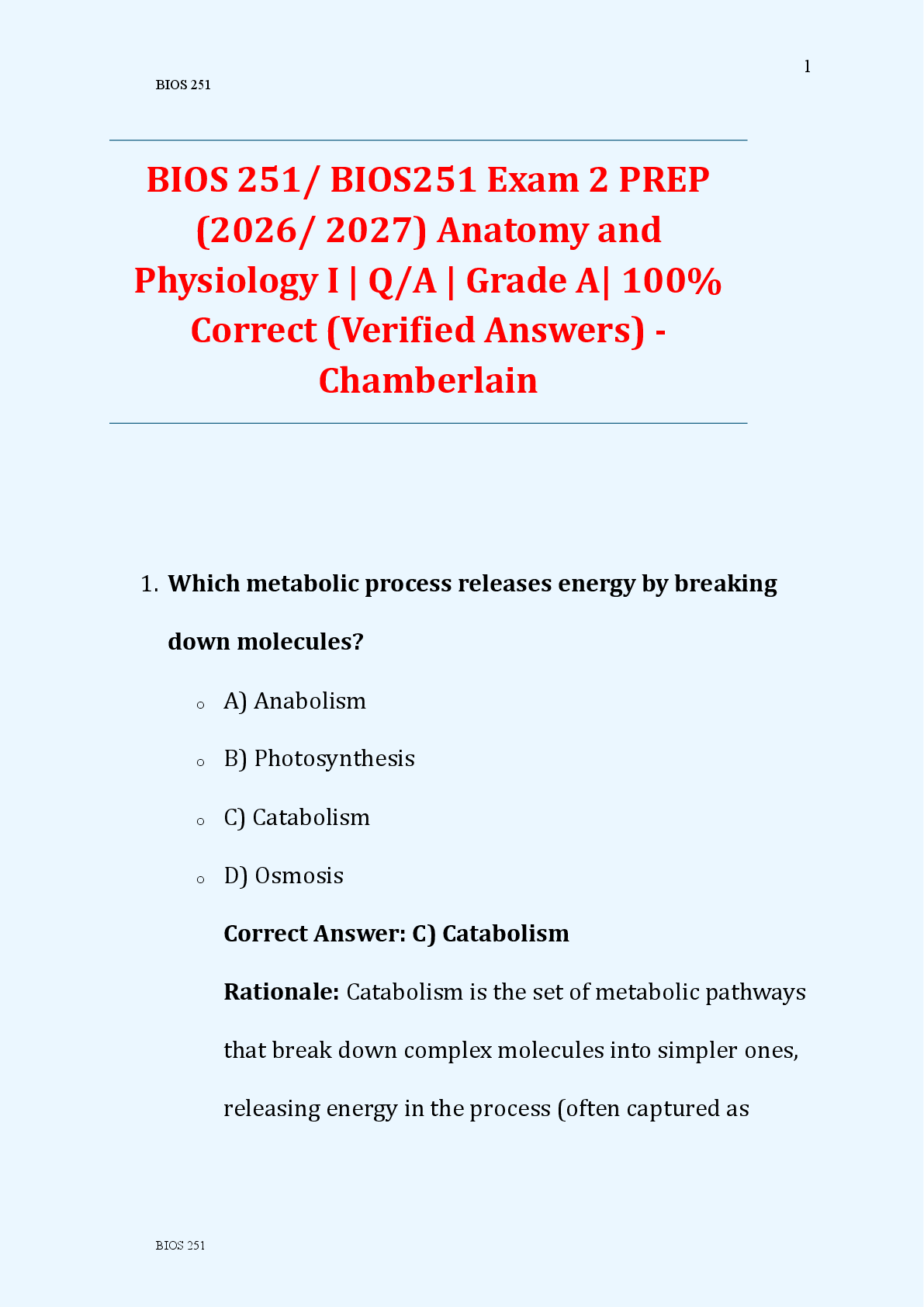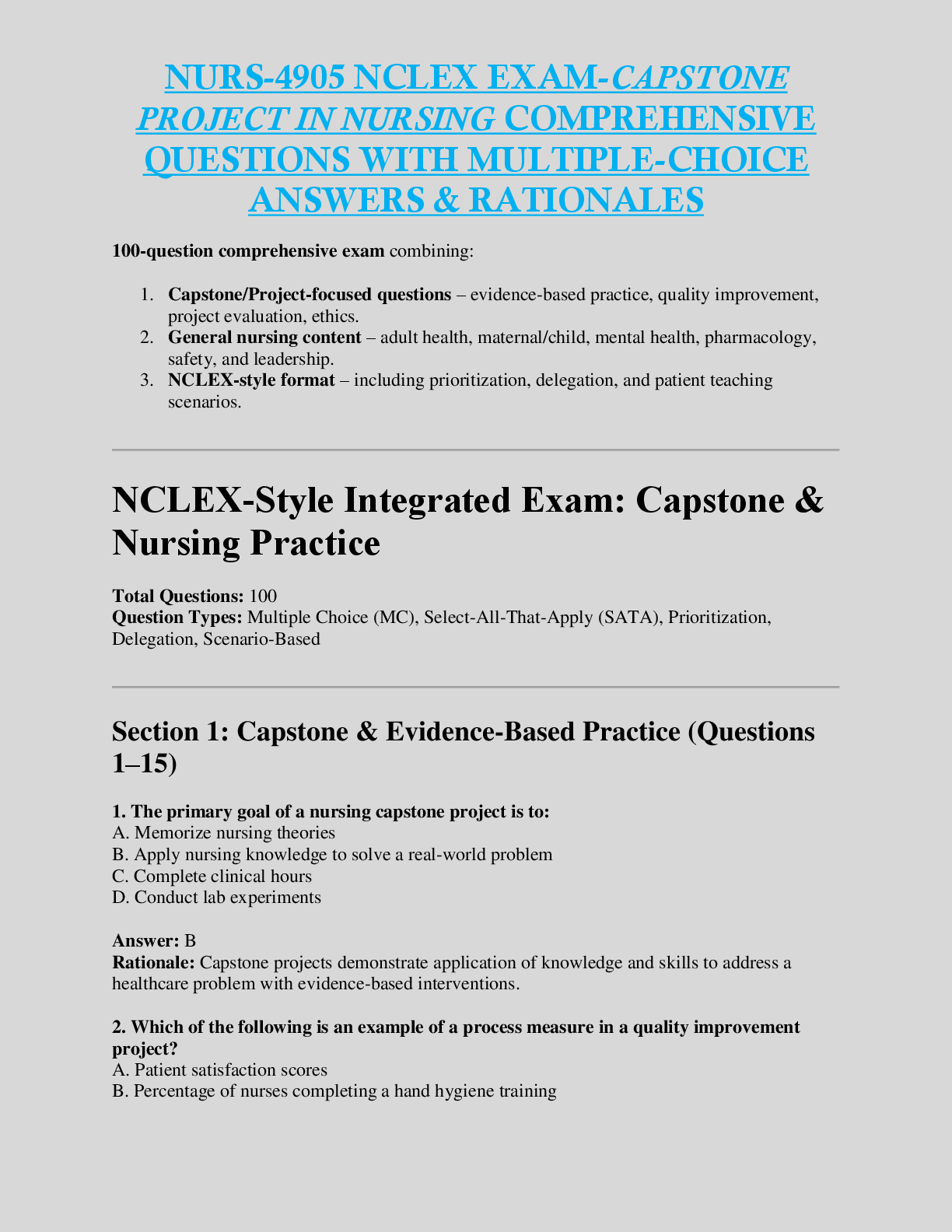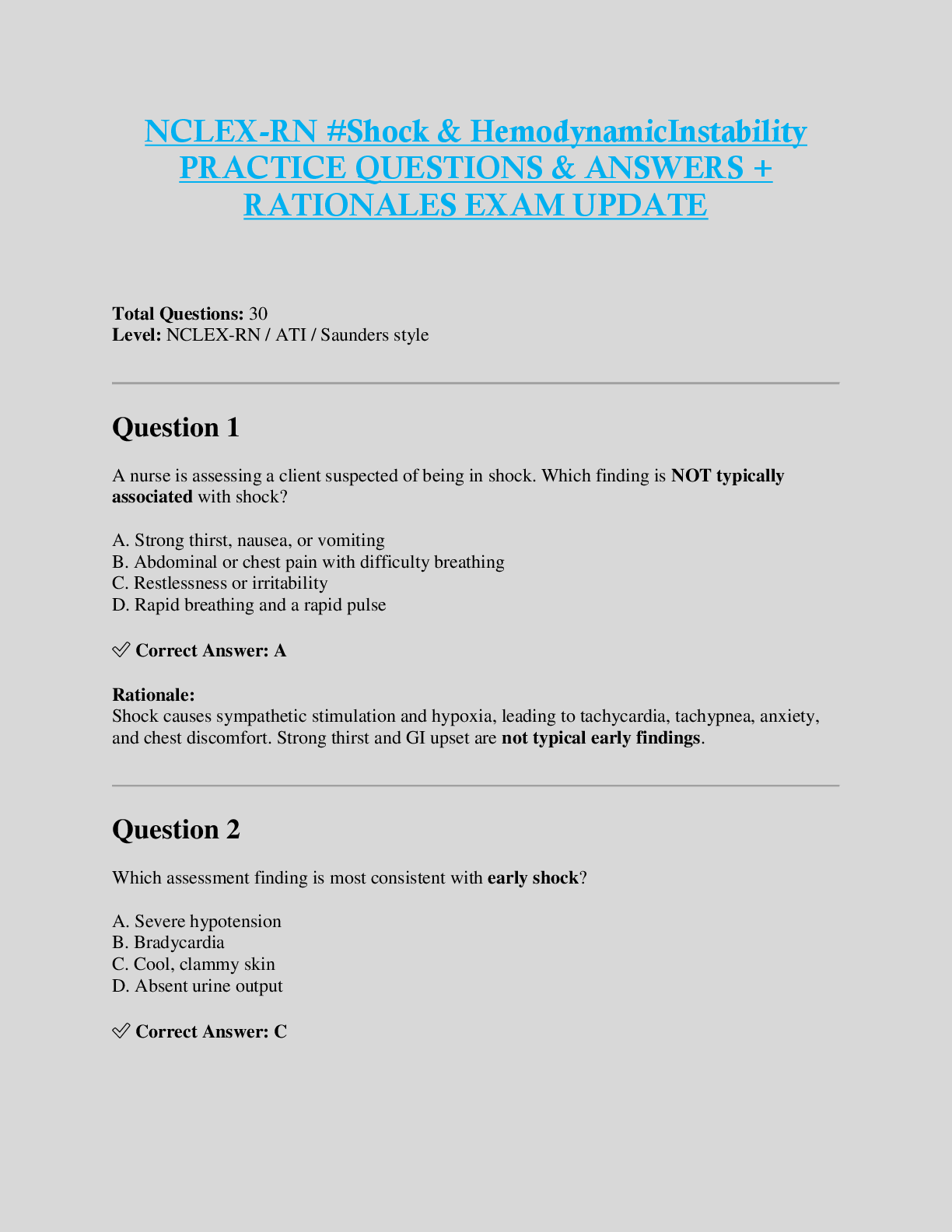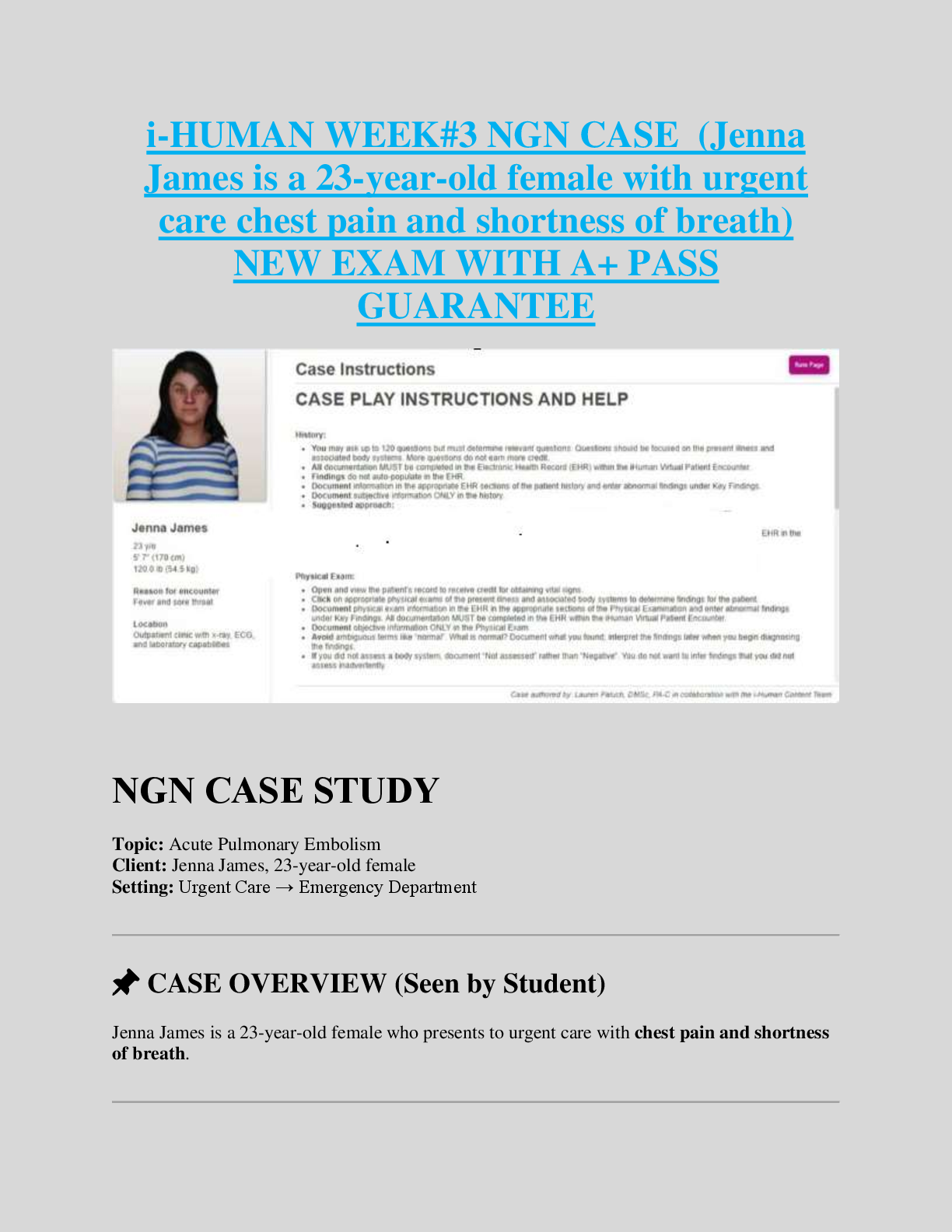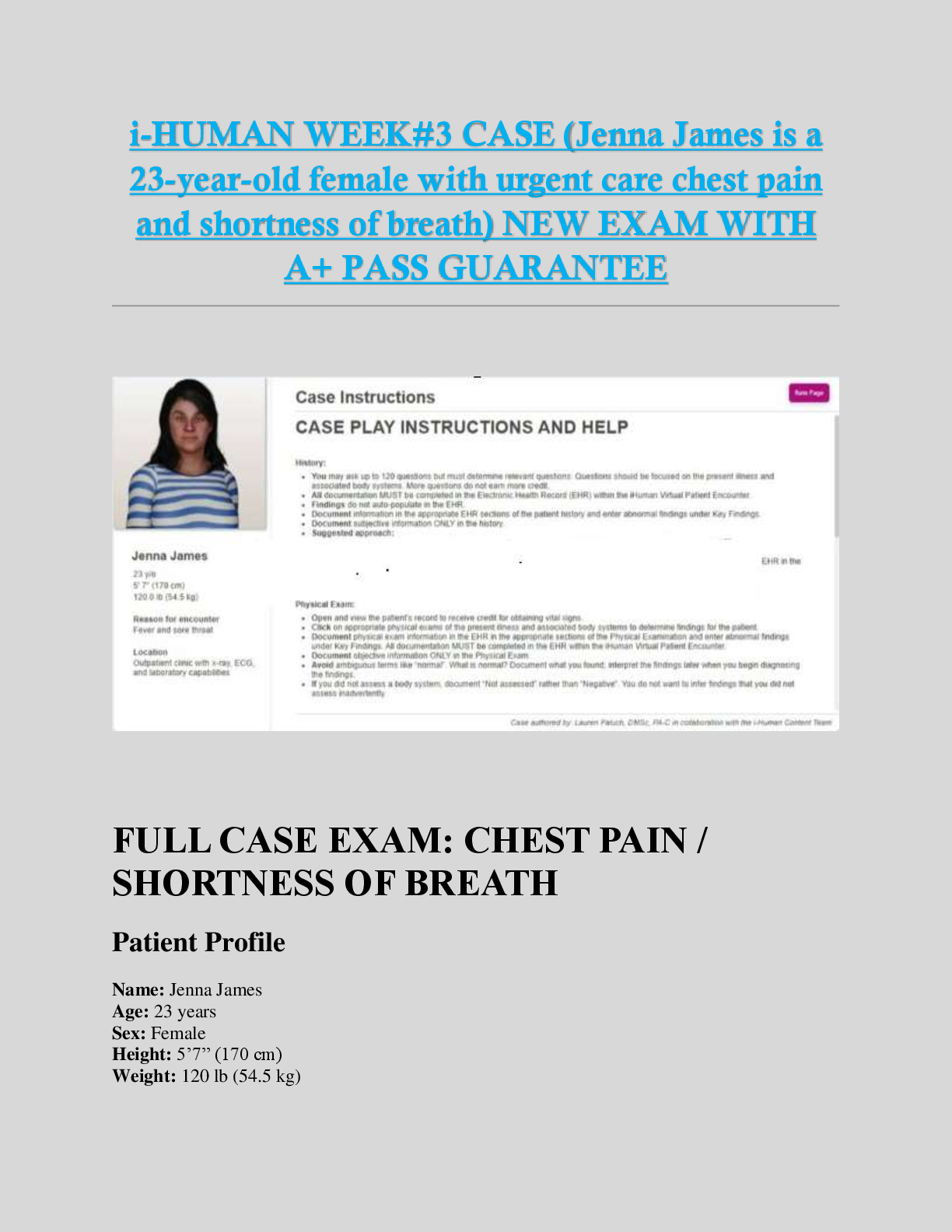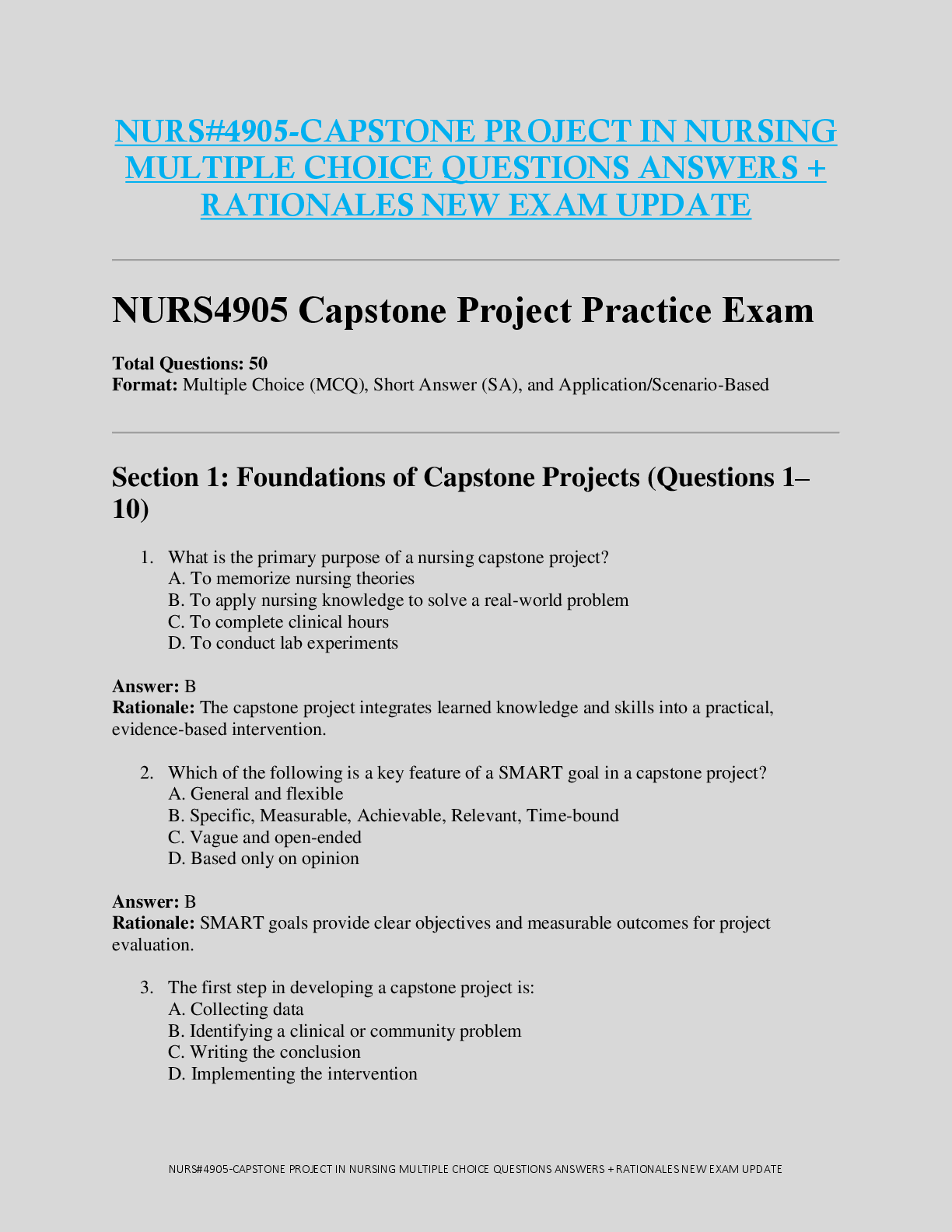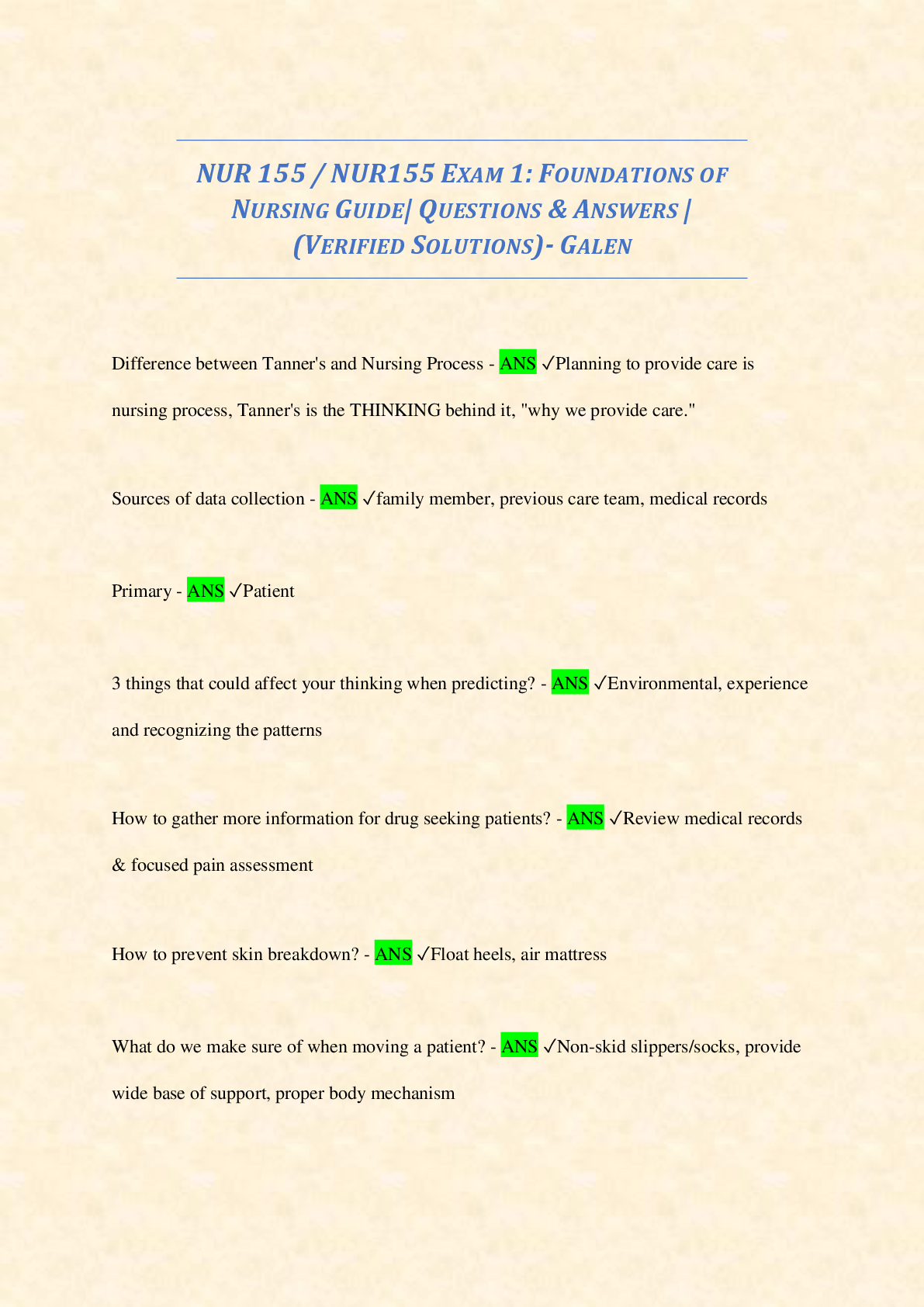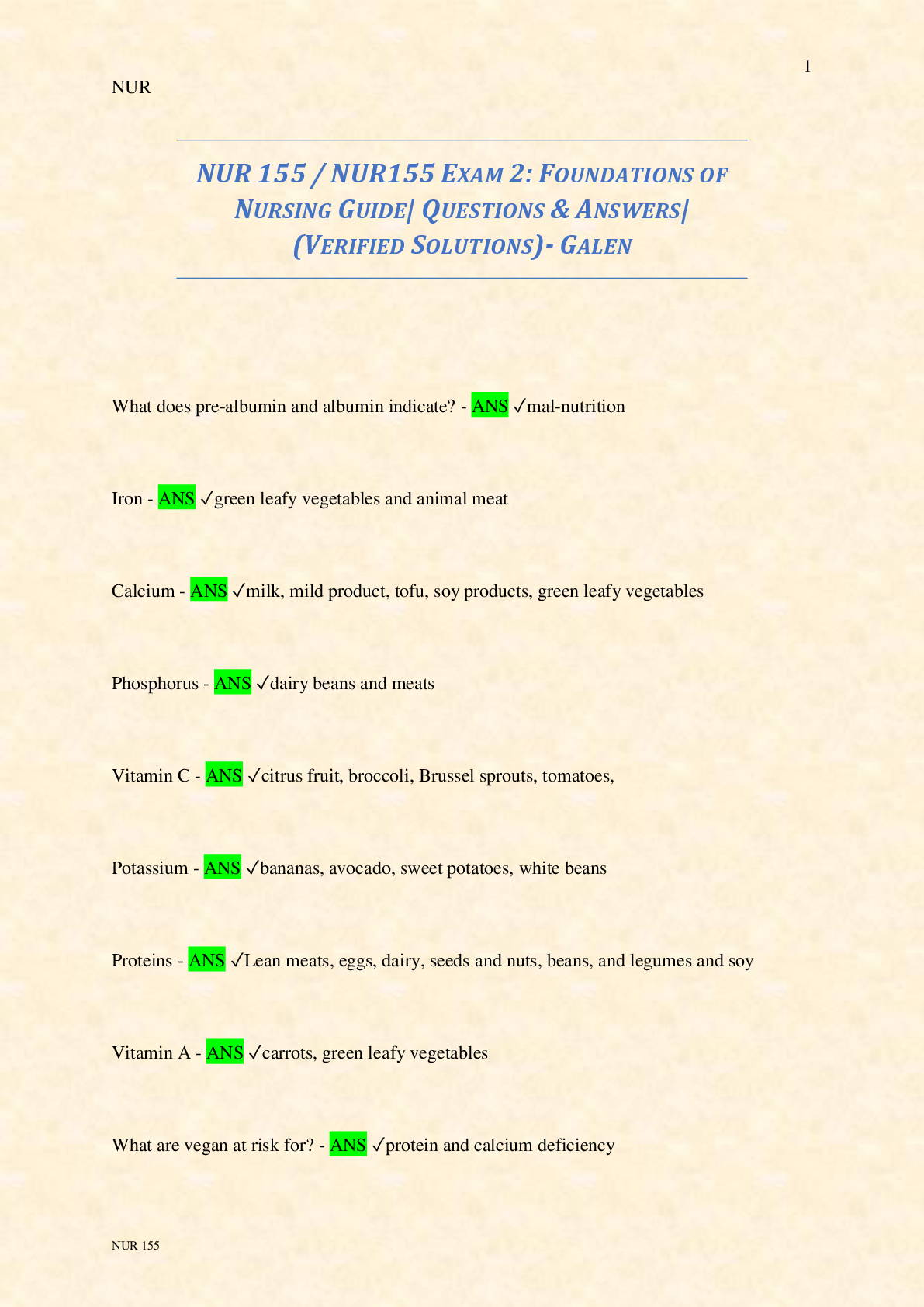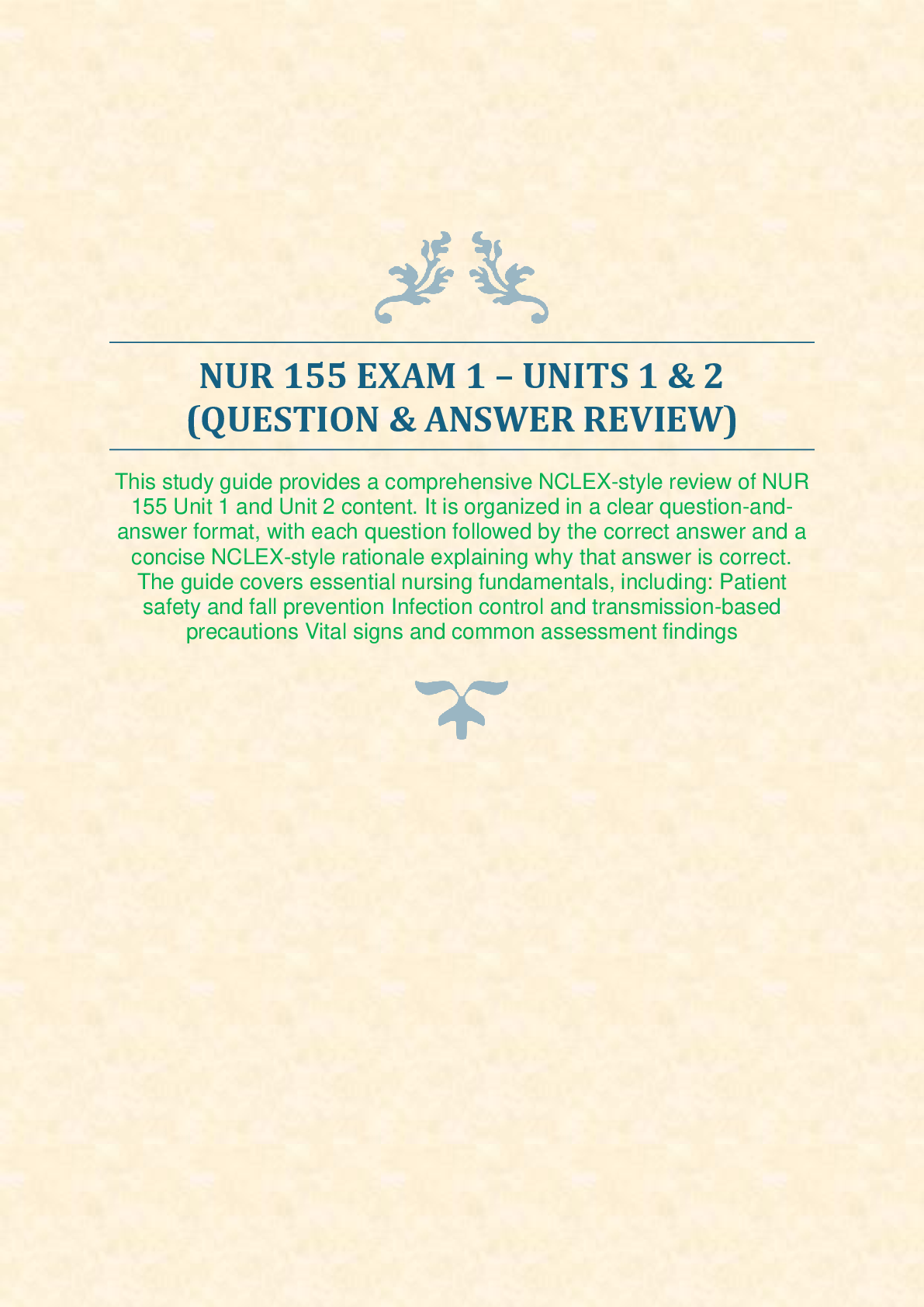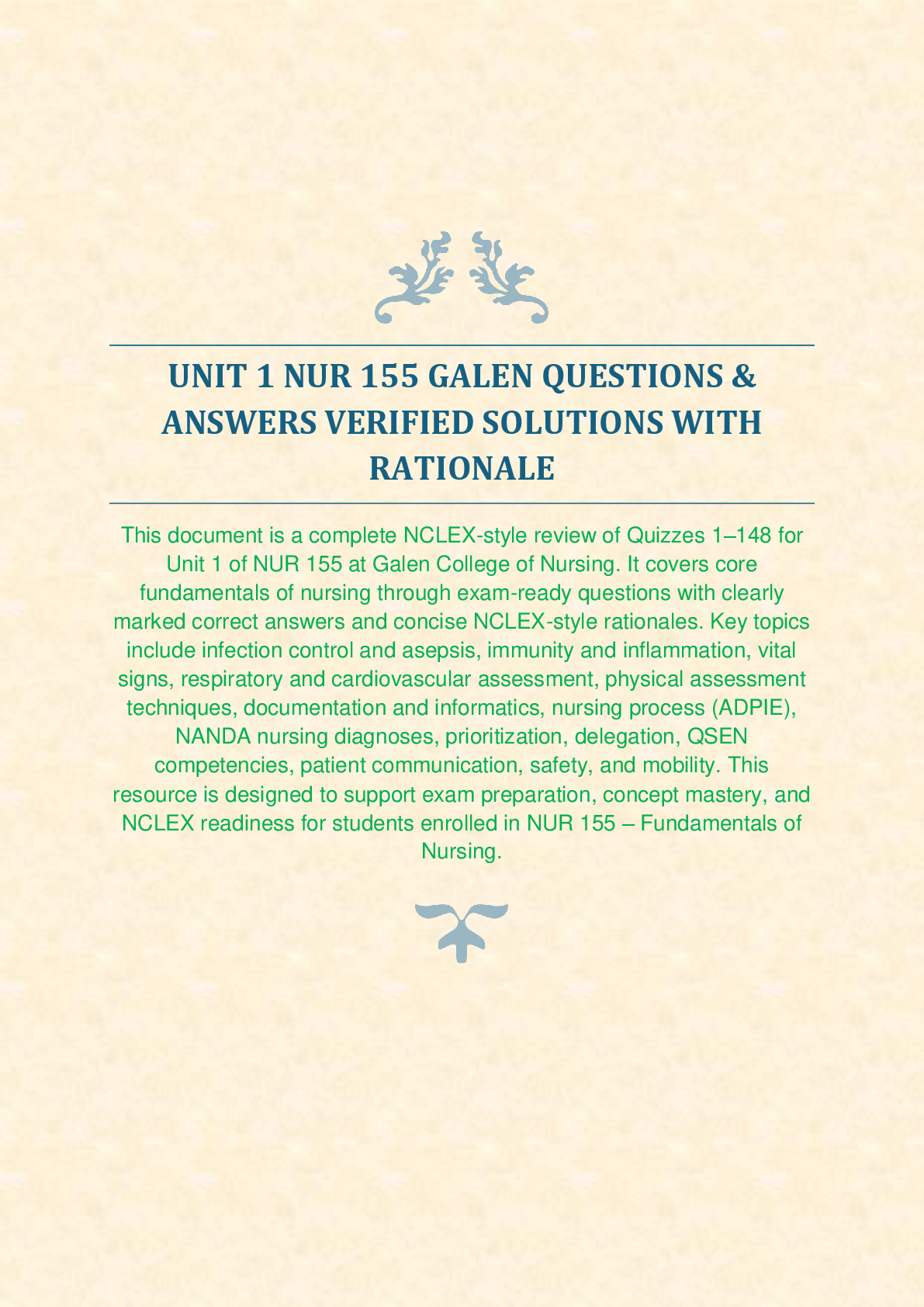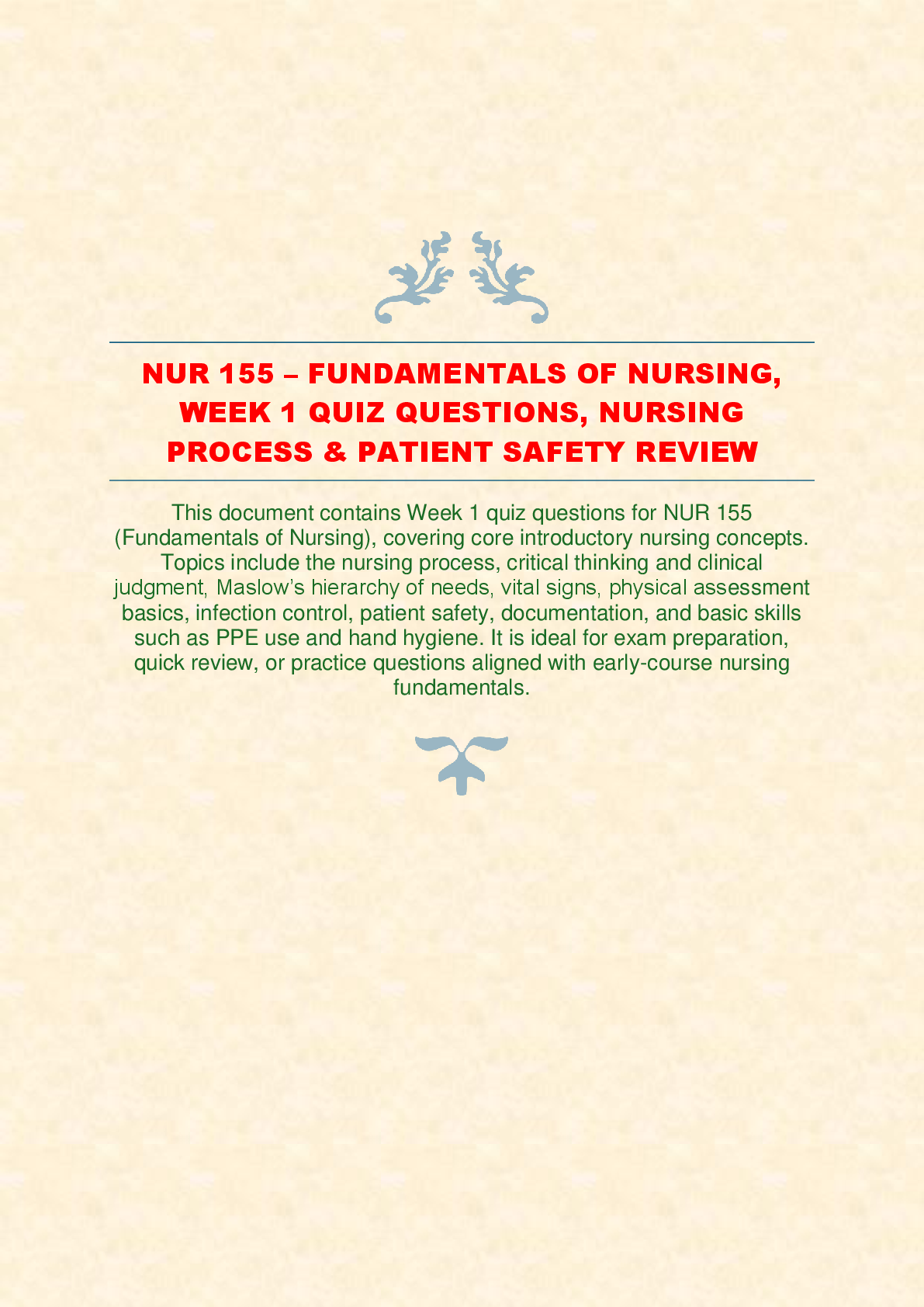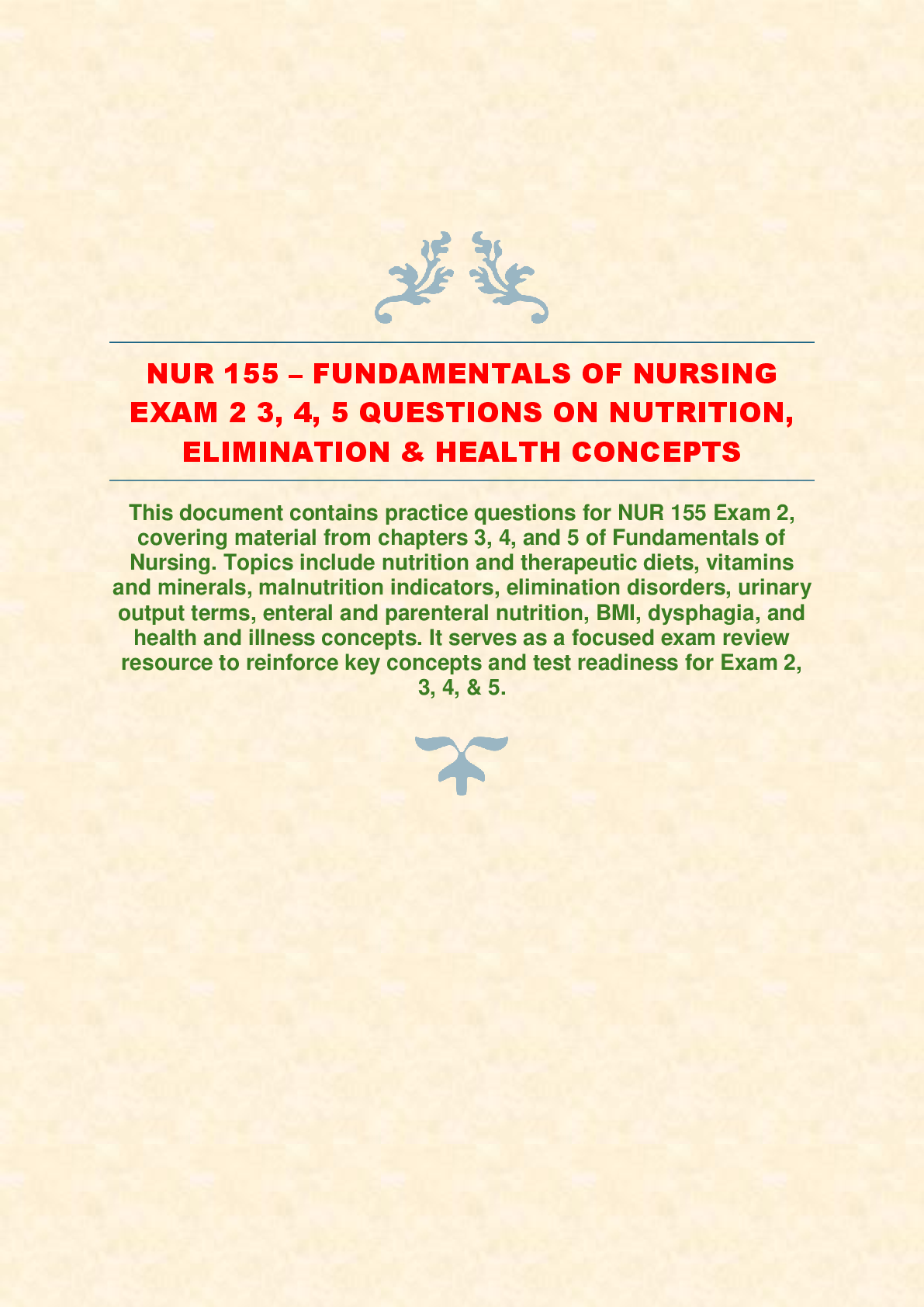ATI PHARMACOLOGY PROCTORED EXAM
1. Patient is admitted for a bowel obstruction and has had a nasogastric tube set
to low intermittent suction for the past 3 days. Which arterial blood gas values
will the nurse expect
...
ATI PHARMACOLOGY PROCTORED EXAM
1. Patient is admitted for a bowel obstruction and has had a nasogastric tube set
to low intermittent suction for the past 3 days. Which arterial blood gas values
will the nurse expect to observe?
a. Respiratory alkalosis
b. Metabolic alkalosis
c. Metabolic acidosis
d. Respiratory acidosis
ANS: B
The patient is losing acid from the nasogastric tube so the patient will have
metabolic alkalosis. Lung problems will produce respiratory alkalosis or acidosis.
Metabolic acidosis will occur when too much acid is in the body like kidney
failure.
13. Which blood gas result will the nurse expect to observe in a patient with
respiratory alkalosis?
a. pH 7.60, PaCO2 40 mm Hg, HCO3– 30 mEq/L
b. pH 7.53, PaCO2 30 mm Hg, HCO3– 24 mEq/L
c. pH 7.35, PaCO2 35 mm Hg, HCO3– 26 mEq/L
d. pH 7.25, PaCO2 48 mm Hg, HCO3– 23 mEq/L
ANS: B
Respiratory alkalosis should show an alkalotic pH and decreased CO2
(respiratory) values, with a normal HCO3–. In this case, pH 7.53 is alkaline
(normal = 7.35 to 7.45), PaCO2 is 30 (normal 35 to 45 mm Hg), and HCO3–is
24 (normal = 22 to 26 mEq/L). A result of pH 7.60, PaCO2 40 mm Hg, HCO3–
30 mEq/L is metabolic alkalosis. pH 7.35, PaCO2 35 mm Hg, HCO3– 26
mEq/L is within normal limits. pH 7.25, PaCO2 48 mm Hg, HCO3– 23 mEq/L
is respiratory acidosis.
14.A nurse is caring for a patient whose ECG presents with changes
characteristic of hypokalemia. Which assessment finding will the nurse
expect?
a. Dry mucous membranes
b. Abdominal distention
c. Distended neck veins
d. Flushed skin
ANS: B
Signs and symptoms of hypokalemia are muscle weakness, abdominal distention,
decreased bowel sounds, and cardiac dysrhythmias. Distended neck veins occur in
fluid overload. Thready peripheral pulses indicate hypovolemia. Dry mucous
membranes and flushed skin are indicative of dehydration and hypernatremia.
15.In which patient will the nurse expect to see a positive Chvostek sign?
a. A 7-year-old child admitted for severe burns
b. A 24-year-old adult admitted for chronic alcohol abuse
A 50-year-old patient admitted for an acute exacerbation of
c. hyperparathyroidism
d. A 75-year-old patient admitted for a broken hip related to osteoporosis
ANS: B
A positive Chvostek sign is representative of hypocalcemia or hypomagnesemia.
Hypomagnesemia is common with alcohol abuse. Hypocalcemia can be brought on
by alcohol abuse and pancreatitis (which also can be affected by alcohol
consumption). Burn patients frequently experience extracellular fluid volume
deficit.
Hyperparathyroidism causes hypercalcemia. Immobility is associated with
hypercalcemia.
16.A patient is experiencing respiratory acidosis. Which organ system is
responsible for compensation in this patient?
a. Renal
b. Endocrine
c. Respiratory
d. Gastrointestinal
ANS: A
The kidneys (renal) are responsible for respiratory acidosis compensation. A
problem with the respiratory system causes respiratory acidosis, so another organ
system (renal) needs to compensate. Problems with the gastrointestinal and
endocrine systems can cause acid-base imbalances, but these systems cann
[Show More]






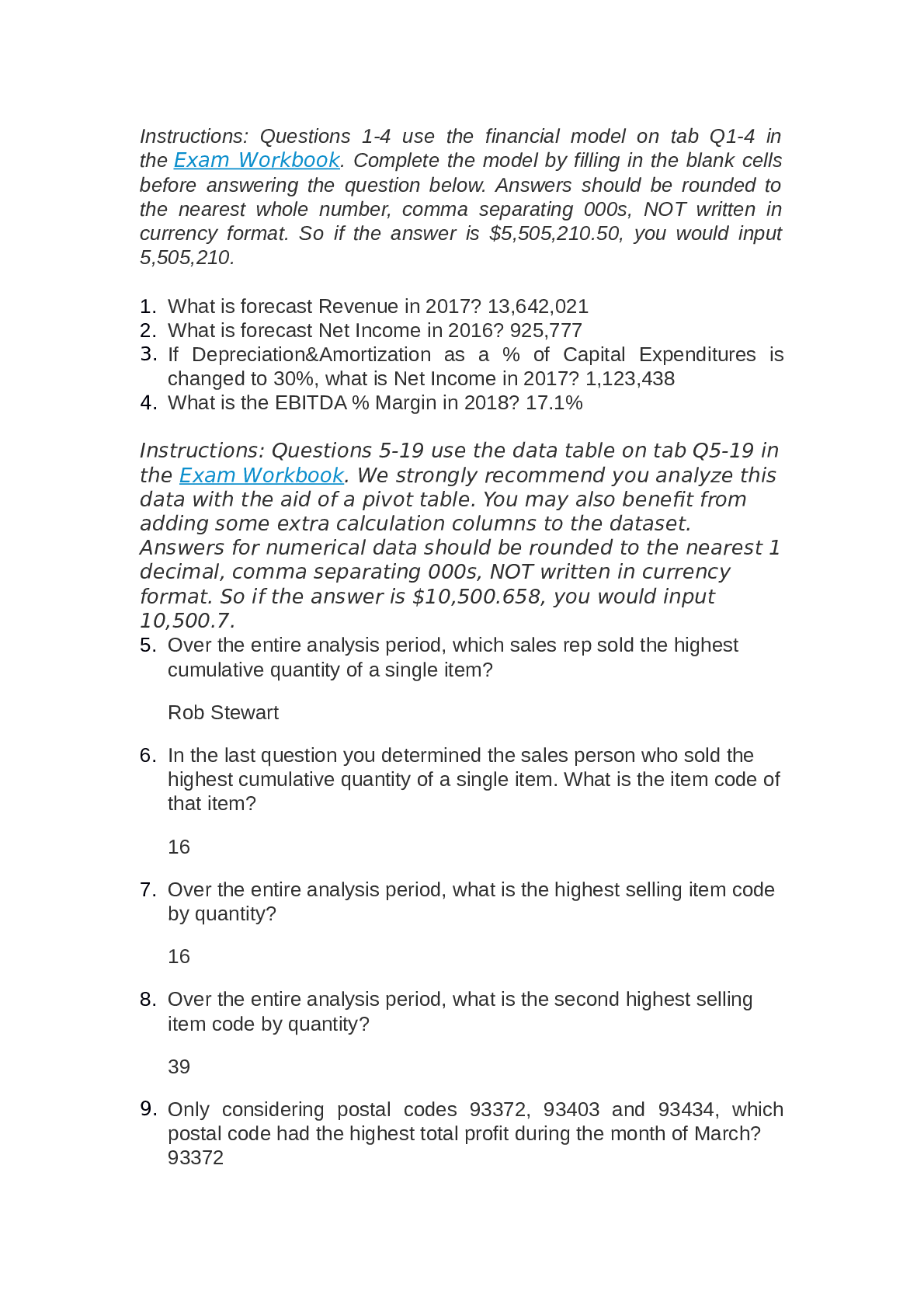

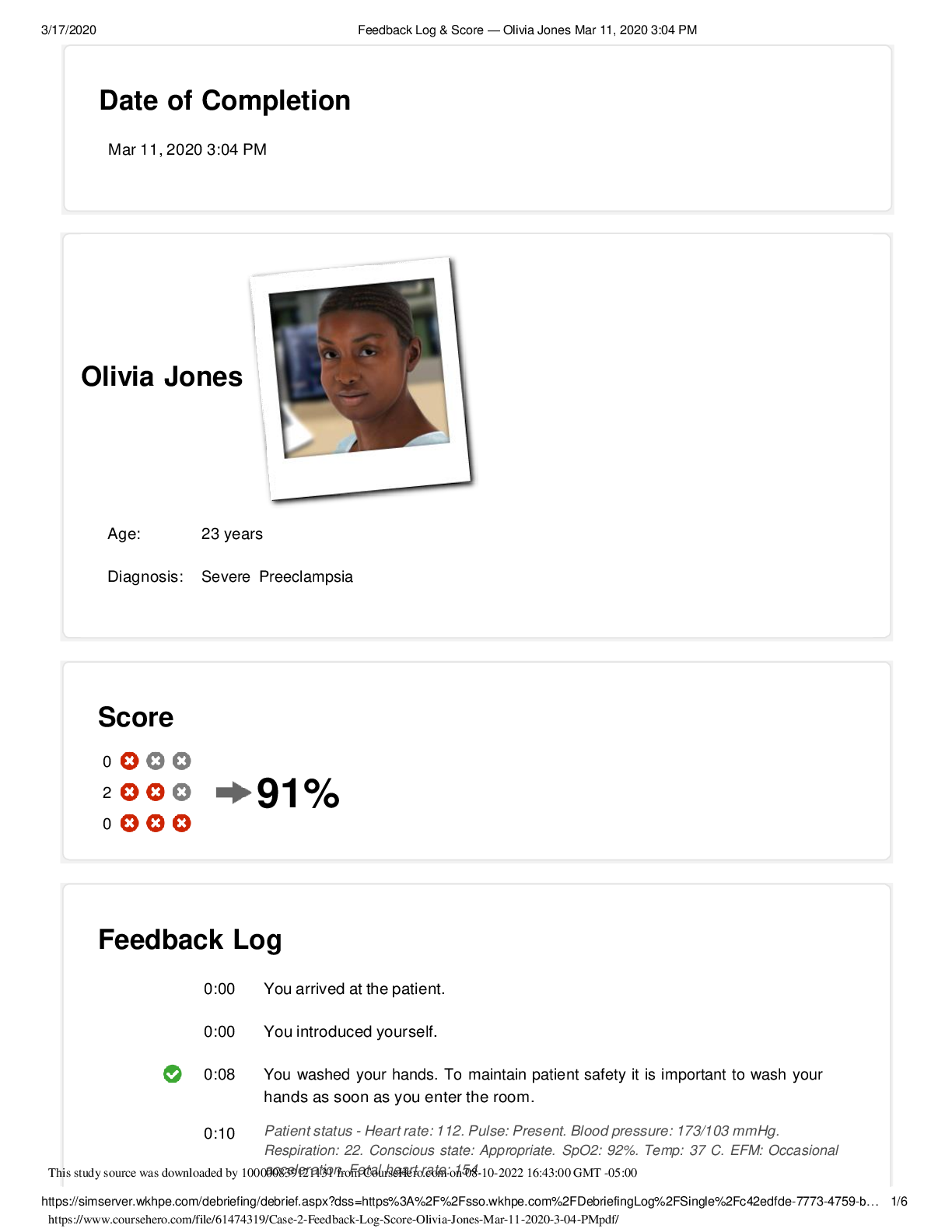

pdf (1).png)
.png)

